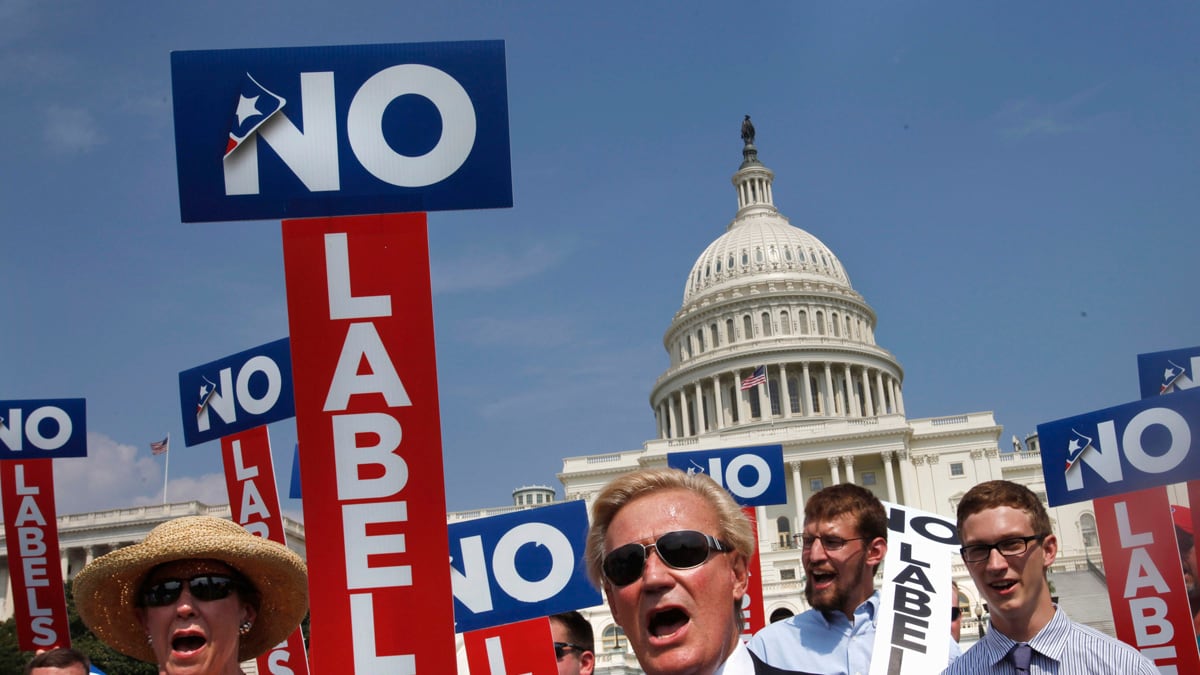Aug. 5, 2011, was a day when many Americans concluded that the U.S. Congress had collectively lost its mind.
That’s when America’s credit was downgraded for the first time in our 235-year history. We hadn’t run out of money or of people willing to buy our debt. Instead, we’d run out of something just as essential to our democracy: the confidence that the United States Congress can get anything done. Today 13 percent of the country approves the job Congress is doing, a historic low measured by Gallup. That’s down to friends and family.
The 2011 debt-ceiling debacle was the culmination of years of partisanship and gridlock that have turned Congress into one of the least-respected institutions in the United States. And the nature of that debate, not the outcome, caused a 20 point drop in consumer confidence to historic lows.
ADVERTISEMENT
At a time when our nation faces immense challenges, the American people have never had less faith in the ability of Congress to do anything about them. This problem couldn’t be more serious—because if Congress is broken, so is the United States of America. Every law addressing any issue we could conceivably care about has to go through Congress first. That means if we want a better tax code, a balanced budget, a better immigration system, or more effective educational and energy policies, we first need to fix our broken Congress. But how?
Many people understandably think the biggest problem with Congress is the people in it. But we effectively “threw the bums out” in the 2008 and 2010 elections, and the dysfunction just got worse. The 2012 election will be no panacea.

Others think the only way to fix Congress is to build a better election system by creating open primaries or ending the gerrymandering that effectively allows politicians to draw their own districts. As promising as these reform efforts are, they’re tough, state-by-state slogs that will take years to succeed. We don’t have that kind of time. Not with the problems we’re facing.
But there is an immediate solution if the American people are willing to mobilize behind it. Congress can fix itself.
The biggest problem with Congress is not the people. It’s the outdated rules, procedures, and traditions that govern the institution and make it impossible for anything to get done. Congress has become a place where even good, talented people get dragged down by a broken system. But if we change the rules of Congress, we can really make our government work again.
One of the great misperceptions about the maddening way Congress operates is that it's just following the rules set by the Founding Fathers. Nothing could be further from the truth. Our Founders were a lot smarter than that. Article 1, Section 5 of the U.S. Constitution says, “Each House may determine the Rules of its Proceedings.” If the next Congress finds rules from the last Congress to be outdated or unproductive, members can tear them up and start over.
Which is exactly what they ought to do.
No Labels, a coalition of more than 180,000 members dedicated to progress over partisanship, has developed a sweeping congressional-action plan called Make Congress Work. The release today of the agenda is the kickoff of No Labels’ campaign to create systemic change in Washington through the implementation of a 12-point plan aimed at breaking gridlock, reducing polarization, and promoting constructive debate. The No Labels coalition intends to use this proposal to pressure lawmakers on the rules committees in the House and Senate to adopt these measures as quickly as possible.
Most of the following dozen proposals don’t require new laws or any new spending, and they don’t favor any party or particular cause. These are simple, straightforward proposals. They can be adopted when the next Congress convenes in January 2013.
1. No Budget, No Pay: Congress has passed its spending bills on time only four times since 1952. Recent failures to pass a timely budget led to significant disruptions of public services. No Labels believes that if Congress can’t make spending and budget decisions on time, it shouldn’t get paid.
2. Up-or-Down Votes on Presidential Appointments: As of late 2011, more than 200 presidentially appointed positions remain unfilled, as senators of both parties have held up nominations, sometimes for trivial reasons. No Labels believes that all presidential nominations should be confirmed or rejected within 90 days of the nomination being received by the Senate.
3. Filibuster Reform: In its first 50 years, the filibuster was used only 35 times—in only the most extraordinary circumstances. Over the last two years alone, the filibuster was employed more than 100 times—often with merely a quick announcement—as a partisan means to disrupt majority rule. No Labels believes that if senators want to filibuster, they must take to the floor and hold it through sustained debate. We also believe that filibusters should never be permitted to prevent floor debate, as they paradoxically are now.
4. Empower the Sensible Majority: Oftentimes, congressional leaders halt popular legislation from reaching the floor to protect partisan advantages. No Labels believes that every congressman should have the ability to anonymously sign discharge petitions to enable bills to go to the floor for a vote. If a majority signs the petition, the names would be released publicly, and the bill could be voted up or down.
5. Make Members Come to Work: In 2012, the U.S. House has scheduled only two weeks when it will be in session for all five days. No Labels believes that Congress should put in a five-day workweek like the rest of us—with three weeks in D.C., and then one week back home with constituents.
6. Question Time for the President: In January 2010, President Obama attended a House GOP retreat to debate health care publicly. We haven’t seen anything like it, before or since. No Labels believes we should follow the example of the British Parliament and schedule regular, nationally televised question time for the president and Congress.
7. Fiscal Report to Congress—Hear It. Read It. Sign It: One of the greatest obstacles to fixing our economy is that we can’t agree on a method for calculating the balance sheet. No Labels believes that Congress and the president should work off the same set of numbers, and that a nonpartisan leader—such as the comptroller general—should deliver an annual televised fiscal update, in person, to a joint session of Congress.
8. No Pledge but the Oath of Office: 238 House members have signed a pledge to never raise taxes. Another 110 have signed a pledge to never cut Social Security benefits. That’s 80 percent of Congress refusing to consider compromise on two of the nation’s biggest budget issues. No Labels believes that members should make no pledge but the pledge of allegiance to the flag and their formal oath of office.
9. Monthly Bipartisan Gatherings: While there has always been partisanship, there recently was a time when members of Congress nurtured relationships with colleagues on the other side of the aisle. Today they are more likely to glare at each other from their partisan encampments. No Labels believes that the House and Senate should undertake monthly bipartisan gatherings, private and off the record, bringing in objective experts to brief them on policy issues.
10. Bipartisan Seating: During President Obama’s 2011 State of the Union speech, some members of Congress left their partisan bunkers to sit next to someone from another party. While not an enormous policy step, it was a powerful symbol of civility and comity. No Labels believes that all joint meetings of Congress should have mixed partisan seating, and committees should arrange seating to promote bipartisanship.
11. Bipartisan Leadership Committee: While ideologically polar opposites, President Ronald Reagan and House Speaker Tip O’Neill met regularly, had a cordial relationship, and worked together to make headway on major issues such as entitlement and tax reform. Now every meeting in D.C. seems like a partisan pep rally. No Labels believes that Congress should form a bipartisan congressional-leadership committee to serve as a forum for discussing both legislation and substantive policy solutions. The committee would meet weekly, and then monthly with the president.
12. No Negative Campaigns Against Incumbents: Just a few decades ago, informal custom prevented one party leader from campaigning against a leader of the other party. This practice has devolved into a cycle of conspiracy and retribution. No Labels believes that incumbents from one party should not conduct negative campaigns against sitting members of the opposing party—no appearances in attack ads or direct mailings, and no traveling to play partisan attack dog.
Mark McKinnon is a cofounder of No Labels.





